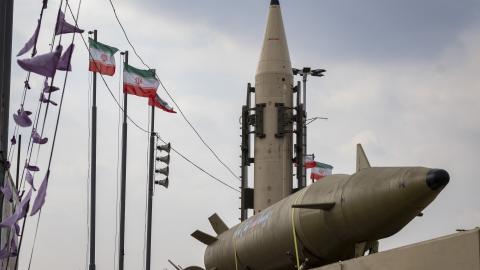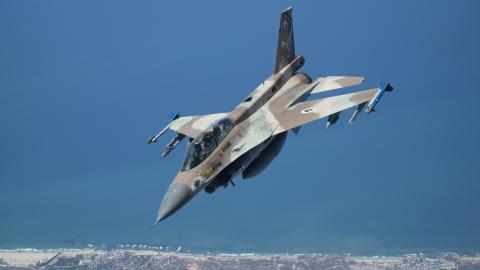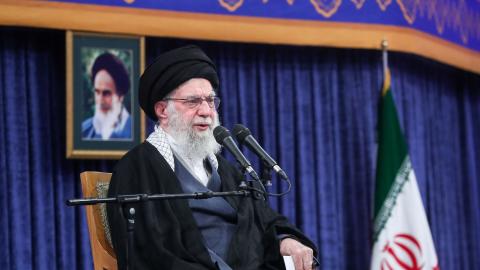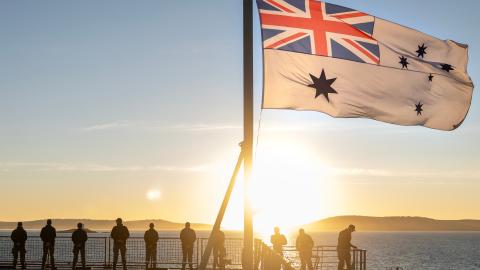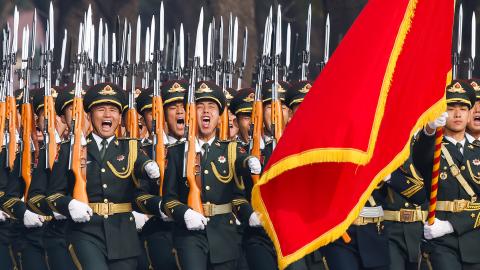At the recent Davos World Economic Forum, Nigerian President Olusegun Obasanjo insisted to journalists "I told you, when I first came to office, that sharia would 'fizzle out'.... And that is exactly what happened. Sharia is not an issue in Nigeria." Sounds great-but it is not quite true. Recent events show not only that Islamic sharia law remains an issue for Nigerians but that, for all too many, it is a deadly issue.
In early January, in Yobe, Nigeria, a man calling himself Mullah Omar led an uprising by a group calling itself the "Taliban." While the names had a comic-opera quality, their actions were brutal. Demanding an Islamic state governed by sharia law, they stormed police stations and other government buildings, pulled down the Nigerian flag, raised the old Afghan flag, stole large quantities of weapons, and declared that they would kill all non-Muslims in a holy war against Christians and the federal government.
Hundreds of people were displaced from Damaturu, Kanamma, Geidam, Yunusari, Toshiya, Dapchi, Babbangida, Bursari, and other villages. The uprising was not put down until hundreds of troops were rushed to the area. Government officials say that seven Taliban and two policemen were killed, but they give no figures for civilian deaths.
As with other countries where extremist Islam is growing, the Saudis are active in Nigeria. In mid-January, they offered to finance the employment of Islamic religious teachers and preachers in Kebbi, another of the northern Nigerian states that have adopted sharia law. The Saudi Religious and Cultural Attaché, Sheik Abdul-Aziz, said that his government had been monitoring the implementation of sharia there and noted the results "with delight."
He maintained, "the fundamental human rights of the non-Muslim have not been infringed," but was notably silent about the fundamental human rights of Muslims. Apart from the five women and two men who have been sentenced to death by stoning for adultery, Muslims have had their hands amputated as a penalty for theft or their eyes removed as a penalty for injury. And there are many Muslims amongst the over 10,000 dead in sharia induced violence.
Abdul-Aziz is also wrong about the effects on non-Muslims. The news service Compass Direct reports that in November, after assaults on Christians that had left three dead, university officials at Maiduguri in Borno ordered all Christian women students to adopt "Islamic dress" or face expulsion. Meanwhile, in Jigawa, Muslim extremists destroyed over 100 churches and church-owned properties, claiming that a Christian had blasphemed.
In December, in an operation in which four died and 175 were arrested, military and police personnel raided a militant Muslim center in the city of Jos. Police said they launched the raid after receiving intelligence that militants were planning to attack Christians at Christmas, and had brought in reinforcements from Niger and Cameroon.
Meanwhile, in Zamfara, Bauchi, and Borno, Christian women have been arraigned in Islamic courts for offences ranging from violating Muslim dress codes to prostitution. Since the local Muslim jurists believe that all decent women should be married by 13, prostitution charges have been leveled at women for the "crime" of being unmarried. Judges in Missau, in Bauchi, told the convicted women to get married immediately or be sent to prison, and one judge, Alhaji Mohammed Kabir, ordered four of them to pick out husbands from among the Muslim men in the court.
Zamfara state maintains an "Islamic Unit" similar to Saudi Arabia's "Committee for the Propagation of Virtue and Prevention of Vice," otherwise known as the Muttawa religious police. One of its officials, Alhaji Bello Kuceri, defended their practice of raiding Christian quarters to enforce "Islamic" standards on the grounds that "we are paid to do so, and anybody caught will face the wrath of the law."
Obasanjo has many virtues, but candor about the effects of sharia in his country is not one of them. The riots and human-rights violations induced by extreme Islamic law in the last three years are now being supplemented by increasing Saudi meddling, the growth of Islamist militias, and an influx of foreign fighters. If he continues to insist that it will all "fizzle out," he may find that it is too late to reverse without virtual civil war.


